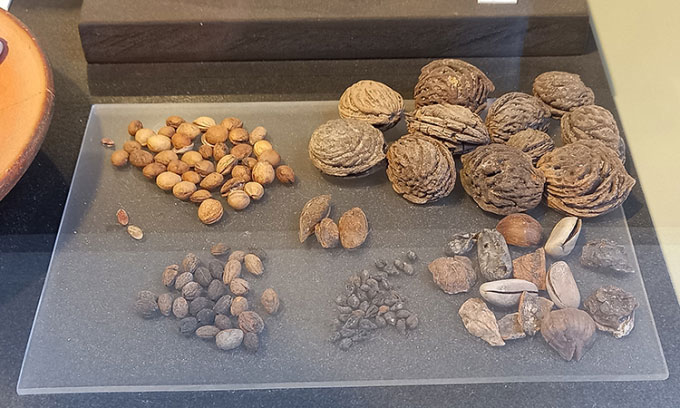During the excavation of the sewer system beneath the Roman Colosseum, experts uncovered numerous seeds, fruits, some coins, and animal bones.

Some types of seeds excavated from the sewer system of the Roman Colosseum. (Photo: Jo Ball).
Scientists discovered food remnants including figs, grapes, cherries, blackberries, olives, and walnuts during the excavation of the 2,000-year-old sewer system of the Roman Colosseum, BBC reported on November 24.
Additionally, they found bones from bears, lions, and leopards, likely belonging to animals forced to fight each other or serve as prey for hunting games intended for entertainment. Smaller dog bones were also uncovered during the excavation of the arena.
Such evidence provides a comprehensive view of the experiences and habits of those who visited the Roman Colosseum during its long history of hosting performances, according to Alfonsina Russo, director of the Colosseum Archaeological Park.
The team of experts also discovered ancient coins during the excavation, including 50 bronze coins from the late Roman period, around 250 – 450 AD, and a special silver coin from 170 – 171 AD commemorating the 10th anniversary of Emperor Marcus Aurelius’s reign.
The research began in January 2021, during which experts excavated approximately 70 meters of sewer beneath the Roman Colosseum. Architects and archaeologists utilized robots to navigate the complex drainage system of the arena, helping them gain further insights into everyday life in Rome as well as ancient hydraulic structures.
The Roman Colosseum remains one of the most visited landmarks in Italy. It is the largest circular amphitheater of the Roman Empire, ceasing operations around 523 AD. This structure is famous for hosting gladiatorial contests and other performances before tens of thousands of spectators.


















































